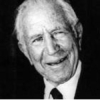Alexander Lowen

Alexander Lowen
Alexander Lowenwas an American physician and psychotherapist. A student of Wilhelm Reich in the 1940s and early 1950s in New York, he developed bioenergetic analysis, a form of mind-body psychotherapy, with his then-colleague, John Pierrakos. He is also noted for developing the concept of bioenergetic grounding, one of the foundational principles of bioenergetic therapy. Lowen was the founder and former executive director of the International Institute for Bioenergetic Analysis in New York City. The IIBA now has over 1500 members...
NationalityAmerican
ProfessionPsychologist
Date of Birth23 December 1910
CountryUnited States of America
Not to fear a person with power--to profess, instead, one's love--is to deny that that person has power.
Are we not witnessing a situation where children are conciously rejecting their parents' value despite love and devotion given to them? The present situation has arisen because parents have failed to transmit a sustaining faith to their children. The basic reason for this failure is that the parents themselves lacked faith. Without faith, their love was an image not a reality, a statement of words not an expression of feelings
The primary nature of every human being is to be open to life and love. Being guarded, armoured, distrustful and enclosed is second nature in our culture. It is the means we adopt to protect ourselves against being hurt, but when such attitudes become characterological or structured in the personality, they constitute a more severe hurt and create a greater crippling than the one originally suffered.
Mature love is not a surrender of the self but a surrender to the self. The ego surrenders its hegemony of the personality to the heart, but in this surrender it is not annihilated. Rather it is strengthened because its roots in the body are nourished by the joy that the body feels.
Love is the feeling that emanates from the heart and extends through the blood to every cell of the body.
The feeling of love is a rich feeling, but the expression of love in word or deed is a joy.
Power seems to confer on its possessor a mantle of superiority, specialness, and sexual potency, which the envious person desperately wants because he feels himself on some level to be inferior, unimportant, and impotent.
The single factor most responsible for the disruption of the family is the automobile. Its full effect cannot be assessed. Modern life, as we know, would be impossible without the ubiquitous motorcar. It broke up the old family and community.
The only way you can make a marriage work is as free, independent people. It needs to be based on the good feelings that you have for each other, not on need.
It is a grave injustice to a child or adult to insist that they stop crying. One can comfort a person who is crying which enables him to relax and makes further crying unnecessary; but to humiliate a crying child is to increase his pain, and augment his rigidity. We stop other people from crying because we cannot stand the sounds and movements of their bodies. It threatens our own rigidity. It induces similar feelings in ourselves which we dare not express and it evokes a resonance in our own bodies which we resist.
The repression of the memory is dependent upon and related to the suppression of feeling, for as long as the feeling persists, the memory remains vivid.
The ego exists as a powerful force in Western man that cannot be dismissed or denied. The therapeutic goal is to integrate the ego with the body and its striving for pleasure and sexual fulfilment.
The person senses what it feels like to be free from inhibitions. At the same time he feels connected and integrated – with his body and, through his body, with his environment. He has a sense of well-being and inner peace. He gains the knowledge that the life of the body resides in its involuntary aspect. […] Unfortunately these beautiful feelings do not always hold up under the stress of daily living in our modern culture. The pace, the pressure and the philosophy of our times are antithetical to life.
Sustenance for the infant and child is more than alimentary nourishment. The child needs love, security, narcissistic supplies -- however one may describe it.